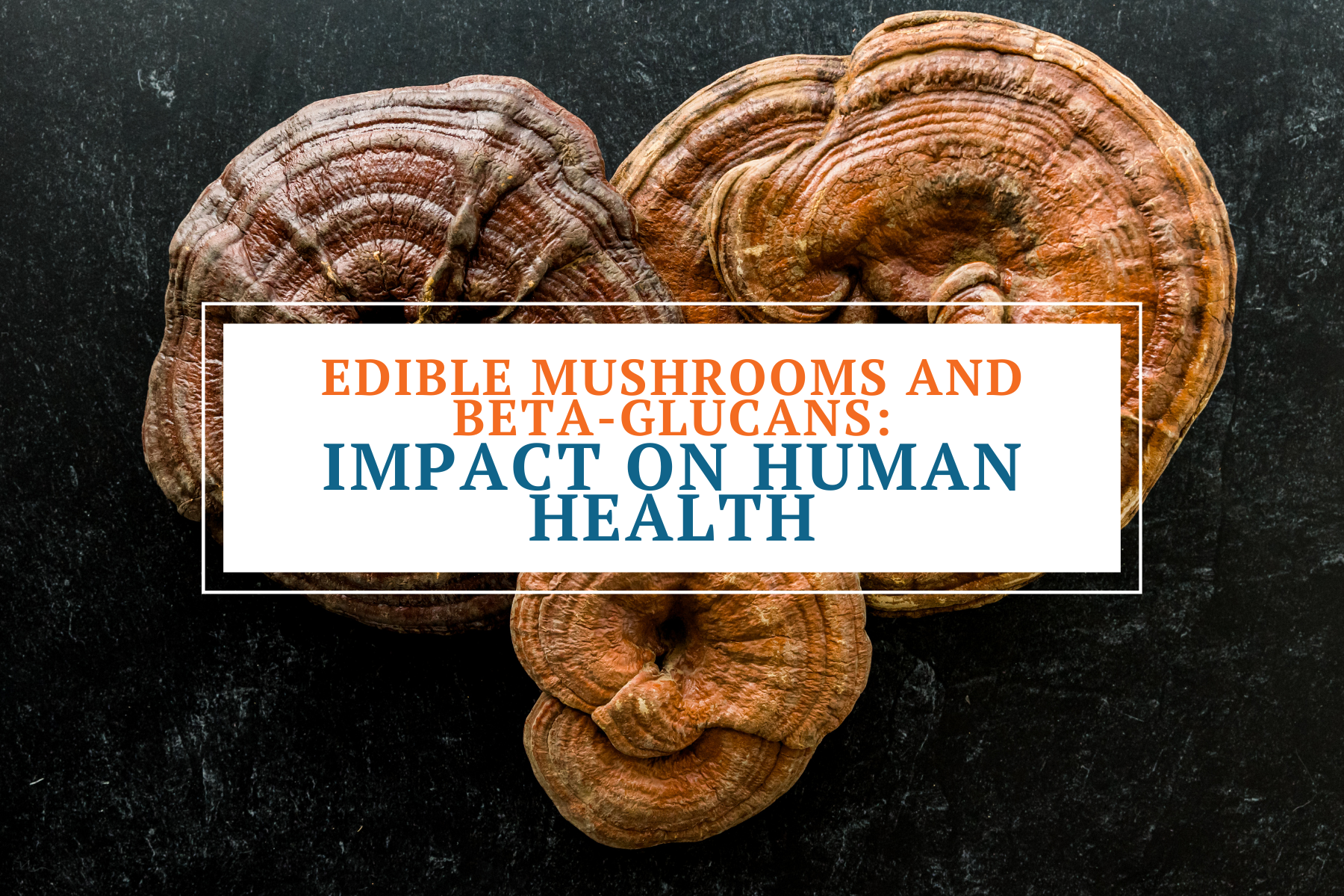Edible mushrooms have long been valued for both culinary and wellness traditions. Modern research confirms that mushrooms contain bioactive molecules—especially beta-glucans*—that help maintain healthy immune, metabolic, and antioxidant balance as part of an overall balanced diet. These polysaccharides are among the most widely studied natural compounds for their broad biological activity.
Understanding Beta-Glucans
Beta-glucans* are long-chain carbohydrates found in the cell walls of mushrooms, oats, barley, and yeast. Mushroom beta-glucans are mainly composed of β-(1,3) and β-(1,6) linkages, a branching pattern associated with unique biological signaling (Vetvicka & Vetvickova, 2021).
Once consumed, beta-glucans interact with receptors on immune cells such as macrophages and natural killer (NK) cells. This helps the body’s defense system respond appropriately to everyday challenges without overstimulation (Murphy et al., 2023).
Immune System Modulation
- In a controlled trial, participants who ate shiitake (Lentinula edodes) daily for four weeks showed improved immune markers, including natural-killer-cell activity and salivary immunoglobulin A (Dai et al., 2015).
- A separate study on oyster mushrooms (Pleurotus ostreatus) found increased macrophage function and balanced cytokine levels (Talpur et al., 2012).
Together, these findings suggest that edible mushrooms rich in beta-glucans may help the immune system stay well-regulated and responsive.*
Antioxidant and Cellular Protection
Mushrooms provide not only beta-glucans but also polyphenols, ergothioneine, and glutathione, all of which contribute to cellular protection.
- Reviews in Frontiers in Pharmacology and the International Journal of Biological Macromolecules report that mushroom-derived polysaccharides enhance antioxidant enzyme activity and help reduce oxidative stress through multiple cellular pathways (Arunachalam et al., 2022; Maity et al., 2021).
- Similarly, chaga (Inonotus obliquus) extracts are rich in polyphenols and melanin complexes that contribute to their antioxidant capacity and traditional medicinal use (Balandaykin & Zmitrovich, 2015).
Such combined actions support overall oxidative balance and normal inflammatory signaling.*
Gut Microbiome and Digestive Support
Mushroom beta-glucans function as prebiotic fibers.* When fermented by gut bacteria, they produce short-chain fatty acids (SCFAs) like butyrate, which nourish the intestinal lining.
- In a Food Chemistry study, beta-glucans from king oyster mushrooms (Pleurotus eryngii) increased Bifidobacterium and Lactobacillus populations and elevated SCFA production (Zhang et al., 2019).
- A later review found that regular mushroom intake supports microbial diversity and metabolic markers (Jayachandran et al., 2021).
Metabolic and Lipid Regulation
Mushroom polysaccharides are being studied for roles in lipid and glucose metabolism. In one human study, oyster mushroom powder was linked to improved cholesterol ratios, though a 2020 systematic review noted that the overall quality of evidence remains low and further trials are needed (Bobek et al., 2001; Jayachandran et al., 2021).
Research on reishi (Ganoderma lucidum) also indicates support for healthy glucose and lipid metabolism via AMPK-related pathways (Wang et al., 2021).*
Neuroprotective and Cognitive Research
Lion's mane (Hericium erinaceus) contains hericenones and erinacines—compounds that appear to influence nerve growth factor synthesis.
- A double-blind, placebo-controlled trial in older adults found that 16 weeks of supplementation improved mild cognitive performance, which returned to baseline after discontinuation (Mori et al., 2009).
- Animal studies suggest additional antioxidant and anti-inflammatory actions that may protect nerve cells (Zhang et al., 2020).*
Key Mushroom Sources of Beta-Glucans
| Common Name | Latin Name | Principal Bioactives | Noted Research Focus |
|---|---|---|---|
| Reishi | Ganoderma lucidum | β-glucans, triterpenes | Metabolic and immune balance |
| Shiitake | Lentinula edodes | Lentinan β-glucan | Immunomodulation |
| Maitake | Grifola frondosa | D-fraction β-glucan | Cytokine signaling |
| Lion's Mane | Hericium erinaceus | β-glucans, hericenones | Cognitive health |
| Chaga | Inonotus obliquus | Polyphenols, melanin | Antioxidant support |
| Cordyceps | Cordyceps militaris | Cordycepin, β-glucans | Energy metabolism |
| Turkey Tail | Trametes versicolor | PSP, PSK polysaccharides | Human studies show PSP modulated gut microbiota composition (Pallav et al., 2014). |
| Oyster Mushroom | Pleurotus ostreatus | β-glucans | Lipid and glycemic balance (pilot evidence) |
| Enoki | Flammulina velutipes | β-glucans | Antioxidant activity |
| Agaricus Blazei | Agaricus blazei Murill | β-glucans | Immune and metabolic research |
Safety and Use
Edible mushrooms are widely consumed as food. Standardized extracts used in human trials range from 250 mg to 3 g daily, depending on concentration and species. Choose fruiting-body-based and third-party-tested products to ensure purity and accurate beta-glucan content.
Future Directions
Active areas of research include:
- Beta-glucans' role in trained immunity and epigenetic adaptation
- Interactions with the gut–brain axis
- Synergistic effects between beta-glucans and polyphenols in whole-mushroom matrices
These findings may expand understanding of how mushrooms contribute to long-term physiological resilience.*
Conclusion
From reishi and shiitake to lion's mane and maitake, mushrooms provide a unique matrix of nutrients and bioactives. Beta-glucans* are central to their biological potential, supporting balanced immune signaling, oxidative protection, and metabolic health.
While additional large-scale studies are warranted, current human and mechanistic data justify the growing recognition of mushrooms as one of nature's most promising functional foods for overall well-being.*
References
Vetvicka, V., & Vetvickova, J. (2021). β-Glucans as immunomodulators. Journal of Fungi, 7(7), 569.
* These statements have not been evaluated by the Food and Drug Administration. This content is for educational purposes only and is not intended to diagnose, treat, cure, or prevent any disease. Always consult a qualified healthcare provider before starting any new dietary supplement or wellness program.



